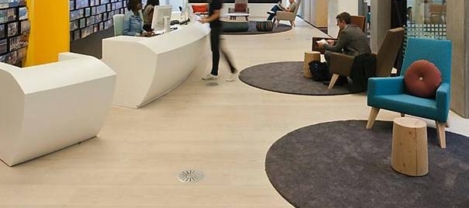February 17, 2016
Younger workers more engaged at work than middle aged staff 0
 Companies with stronger financial performances and better customer experience have employees who are considerably more engaged than their peers, a new survey by Temkin Group claims. The research also shows that out of all the industries, the construction sector has the highest percentage of engaged employees. Organisations with 501 to 1,000 employees have the highest percentage of engaged employees and companies with 10,000 or more employees have the lowest level of engagement. Employees who are highly educated, high-income earners, executives, male, and have very good bosses tend to be the most highly engaged. 63 percent of highly engaged employees always try their hardest at work, compared with 42 percent of disengaged employees. And for those who doubt the commitment of millennials – 25- to 34-year-old employees are the most engaged group, while 45- to 54-year-old employees are the least engaged.
Companies with stronger financial performances and better customer experience have employees who are considerably more engaged than their peers, a new survey by Temkin Group claims. The research also shows that out of all the industries, the construction sector has the highest percentage of engaged employees. Organisations with 501 to 1,000 employees have the highest percentage of engaged employees and companies with 10,000 or more employees have the lowest level of engagement. Employees who are highly educated, high-income earners, executives, male, and have very good bosses tend to be the most highly engaged. 63 percent of highly engaged employees always try their hardest at work, compared with 42 percent of disengaged employees. And for those who doubt the commitment of millennials – 25- to 34-year-old employees are the most engaged group, while 45- to 54-year-old employees are the least engaged.

































January 8, 2016
The six things all people need from their workplace 0
by Jane Kendall-Bush • Comment, Facilities management, Knowledge, Workplace design
(more…)